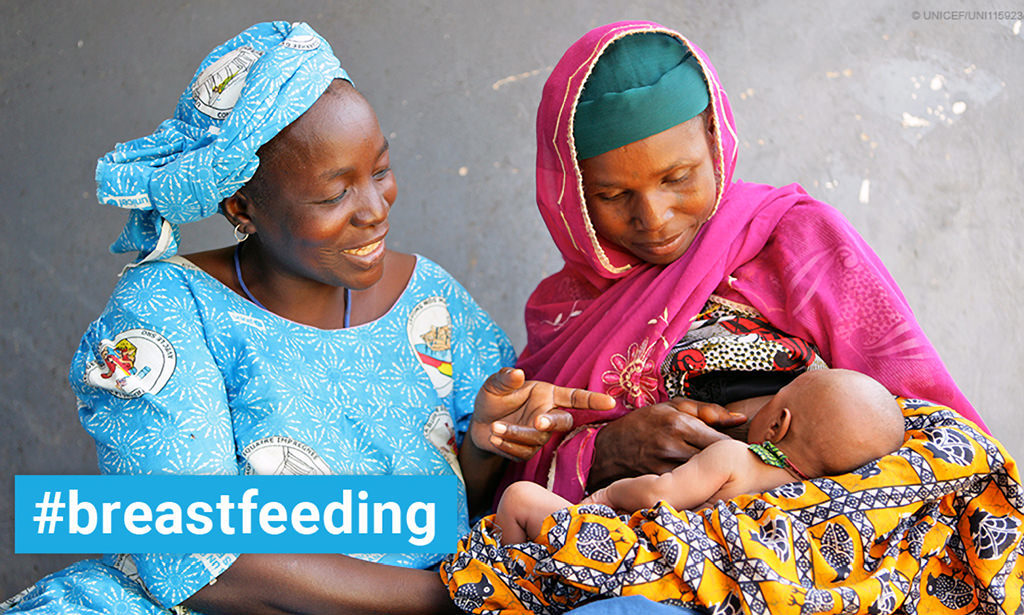“What if governments had a proven, cost-effective way to save babies’ lives, reduce rates of malnutrition,
support children’s health, increase educational attainment and grow productivity?
They do: It’s called breastfeeding.”
Anthony Lake, UNICEF Executive Director
How many countries are supporting women to breastfeed, and protecting and promoting breastfeeding to international standards?
Zero. None.
That’s the shocking conclusion of a new UNICEF/WHO report released in observance of World Breastfeeding Week 2017:
- Only 40 per cent of children younger than six months are breastfed exclusively – given no other liquids or food – according to a UNICEF/WHO Global Breastfeeding Scorecard.
- An investment of just $4.70 per newborn could generate $300 billion economic gains by 2025, and save the lives of 520,000 children.
“Breastfeeding gives babies the best possible start in life,” said the new head of the World Health Organization Dr. Tedros Adhanom Ghebreyesus. “Breastmilk works like a baby’s first vaccine… giving them all the nourishment they need to survive and thrive.”
Given these extraordinary benefits why have global breastfeeding rates stagnated at 40 per cent for several decades?
UNICEF probed the global and nutrition communities for answers to this vital questions in a study I was privileged to undertake, Breastfeeding on the Worldwide Agenda.
Breastfeeding champions admitted to major struggles they faced, both external and internal to the community:
- A lack of high-level leadership, champions and a unified agenda.
- A David and Goliath effort to counter the growing influence of the breastmilk substitute industry whose sales are projected to hit $70 billion by 2019. The industry spends more money marketing its products than governments do supporting women to breastfeed and protect them from aggressive marketing.
The community was unanimous in calling for a new advocacy drive for breastfeeding framed for a 21st century world.
Answering this call, the Global Breastfeeding Collective launched last week, a partnership of 20 international agencies focused on increasing political commitment and investment in breastfeeding worldwide.
To advance its ambitious agenda, the Collective must now answer these questions:
- What decisions are we trying to influence and who has power over them?
- What actors must we win over to advance our cause?
- What leverage points will have most impact on these actors – evidence, communication channels, new alliances, high level events?
- What can we learn from advocates who have shifted social attitudes on smoking in public places, for example, and those who have taken on formidable multinational industries?
- How can we best place gender equality and women’s voices at the heart of our advocacy?
Savvy answers to these questions can have a transformative impact. It’s high time the flat line of 40% global breastfeeding coverage starts rising. If we can collectively bend it upward towards justice, we will have evidence the world is finally become a more breastfeeding-friendly place.




